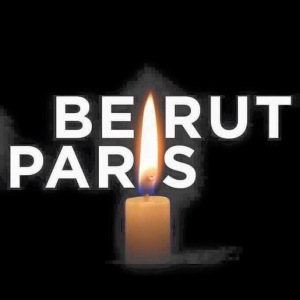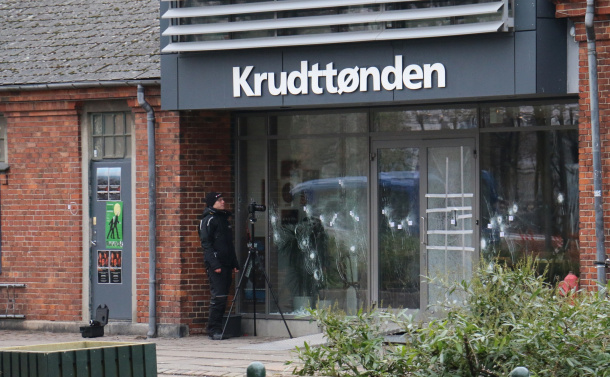By: Deborah Asseraf
Six coordinated terror attacks, involving seven terrorists took place in East Paris and near the Stade de France at Saint Denis on the evening of Friday, November 13. In Saint Denis, three terrorists blew themselves up near the stadium, while supporters inside attended a friendly France – Germany football match. Among the five attacks in East Paris, one was a suicide bombing, at the Boulevard Voltaire, and four others were shootings. This included the Bataclan concert hall hostage crisis, during which as soon as police launched the assault the four attackers detonated the bombs they were carrying. At least 132 people were killed and 350 wounded.
Islamic State responsibility
Islamic State claimed responsibility soon after in a statement that defined the attacks as the ‘first of the storm’. Indeed, France is likely to be a primary target for the terrorist group. For example, a video released in September 2014 attributed to Abu Muhammad al-Adnani, known as an ISIS spokesperson, instructed followers around the world to kill citizens of the countries involved in the coalition: ‘If you can kill a disbelieving American or European – especially the spiteful and filthy French – or an Australian, or a Canadian, or any other disbeliever from the disbelievers waging war, including the citizens of the countries that entered into a coalition against the Islamic State, then rely upon Allah, and kill him in any manner or way however it may be.’
Using the same rhetoric in another video released in October 2014, a French ISIS militant warned France that ‘as many bombs you dropped in Iraq and Sham [Syria], you will have as many murders, as many killings, like our brother Mohammed Merah did. You are afraid of one brother, there will be thousands and thousands in the future’. The call for attacks in France has become a key element of ISIS propaganda directed towards French potential recruits.
France is a main pool of recruitment for Islamic State. Among the 30,000 ISIS ‘soldiers’ in Syria and Iraq, most are foreign fighters, and in 2014 about 1,200 were said to be French. According to a 2015 report by a French Senate investigation committee dedicated to countering jihadist networks in France and Europe, 1500 French citizens who fled to Syria have been identified by the intelligence services. Accurate policy responses to handle the cases of those who return to France are yet to be found. The antiterrorism bill passed on November 13, 2014 modifies statutory law regulating the entry of foreigners but does not tackle the issue of French fighters coming back from Syria. The first article of the bill only allows authorities to prevent a suspected ‘jihadi candidate’ from going abroad.
At present, the intelligence administration has registered 4,000 people in ‘fiches S’, administrative memos compiling information about persons who are known for their ‘Islamic radicalization’ on French territory. One of the Bataclan terrorists, Omar Ismaïl Mostefaï was registered in a ‘fiche S’ for ‘radicalization’.
Internal responses to the crisis: a national emergency plan
President François Hollande, who was rushed out of the Saint Denis stadium as soon as the explosions were heard, immediately addressed the Nation that night. He called for an emergency ministerial meeting and announced two measures. President Hollande first declared a state of emergency, and second announced the closing of French borders. If these domestic responses to the crisis are mainly consensual in France, the issue of external action in Syria remains the subject of fierce debate.
The state of emergency is an exceptional legal situation in which French State authorities are allowed to take special action outside of the framework of ordinary law. Prefects (state representatives in regions) are allowed to impose bans on traffic, curfews, large gatherings, and allow searches and raids without warrants. The state of emergency is based on a 1955 law, passed in response Algerian National Liberation Front terror attacks in 1954. It was first used three times during the Algerian War of Independence. A state of emergency was last declared in 2005 on the occasion of the large-scale riots in the Parisian suburbs. In 2015, the state of emergency is not only applied at the local level, but to the entire national territory. It allows for the cancellation of cultural events, gatherings, the closure of public monuments and museums, and increased levels of security and surveillance. Accordingly, 1,500 soldiers were deployed in the capital and nearly as many police officers. In order to implement efficient border controls, customs staff were reinforced.
As part of the state of emergency, 168 antiterrorist raids took place on Sunday, November 15 and overnight into Monday, November 16, in the homes of potential terrorists registered in a ‘fiche S’ and 23 people were arrested. The raids were conducted in Bobigny (Northern Paris), Toulouse, Grenoble, Strasbourg, Lille-Roubaix, Marseille and Lyon, where a rocket launcher was discovered. In Villefranche-sur-Saône, close to Lyon, heavy weaponry was found, including a Kalashnikov assault riffle, a rocket launcher, pistols, and bullets. Aside from the current investigation that led to identify French and Belgian terrorist cells, raids current searches aim to dismantling other networks. Interior Minister Bernard Cazeneuve stated: ‘It is just the beginning’.
External response: is France at war?
In an official address on November 14, President Hollande stated that: ‘What happened yesterday in Paris and in Saint Denis close to the Stade de France was an act of war. Faced with war, the country has to take appropriate decisions. An act of war that was committed by a terrorist army, Daesh, a jihadist army against France, against the values we defend throughout the world, against who we are, a free country that speaks to the whole world’. The use of the expression ‘act of war’ is a crucial step for France. It suggests the terrorist attacks carried out on French territory have external belligerent outcomes. Designating ISIS as an ‘army’ seems very delicate considering the situation on the ground. Islamic State may have its own institutions, control territory, and a population, but it is not recognized as a state on the international scene. Hence, ISIS is not in control of a regular army but rather comprises a various range of actors from former Saddam Hussein officials to jihadist terror groups including the former Al Qaeda in Iraq (AQI).
Declaring war against ‘the Caliphate’ is no less than declaring a war against terror. If the very term resembles G. W. Bush’s rhetoric, it can also be feared that such a war is already lost. Regarding the fact that terrorists carrying out such so-called ‘acts of war’ are French citizens, it seems impossible to consider ISIS as a defined enemy in the form of an army.
It is not clear whether President Hollande is really declaring war based on a use of international law. At the moment the French and US-led coalition against ISIS launched in 2014 includes Western countries (Australia, Canada, United Kingdom, Belgium, Denmark, Netherlands) as well as Arab and Middle-Eastern countries (Jordan, Morocco, Saudi Arabia, Bahrain, Qatar, Turkey, United Arab Emirates). Nevertheless, the coalition intervention, consisting of airstrikes as well as arming and training support to the Kurds is completely informal. Western action could hardly be an UN-backed intervention, as a unanimity vote at the Security Council, would be likely impossible considering Russia’s pro-Assad agenda.
Nonetheless, the use of the term ‘act of war’ by President Hollande could be a way to legitimize an intervention under NATO provisions. Indeed, the 1949 Washington Treaty (article 5) states: ‘The Parties agree that an armed attack against one or more of them in Europe or North America shall be considered an attack against them all and consequently they agree that, if such an armed attack occurs, each of them, in exercise of the right of individual or collective self-defence recognised by Article 51 of the Charter of the United Nations, will assist the Party or Parties so attacked by taking forthwith, individually and in concert with the other Parties, such action as it deems necessary, including the use of armed force, to restore and maintain the security of the North Atlantic area.’
Moreover, in 1999 NATO members recognized acts of terror as armed attacks that possibly bound allies to collective defence: ‘Any armed attack on the territory of the Allies, from whatever direction would be covered by Articles 5 and 6 of the Washington treaty. However, Alliance security must also take account of the global context. Alliance security interests can be affected by other risks of a wider nature, including acts of terrorism’.
As an act of war opens the legal possibility for a use of force under international law, France could call for its NATO allies to support and retaliate against ISIS and escalate the conflict. However, legitimizing war against ISIS through international law might also lead the nations involved to acknowledge that the earlier coalition was illegal. On the night of November 15, ten French fighter jets dropped twenty bombs in their biggest raid in Syria so far. They targeted Islamic State’s strongholds in Raqqa in coordination with US forces.
A strong response
While French intentions regarding the coalition against ISIS are not completely clear, it seems very unlikely that troops would ever be dispatched to the ground. However, the latest attacks will no doubt affect French foreign policy, and an escalation in airstrikes with support of the coalition may be occurring, as President Hollande vowed a ‘merciless response’ to ISIS. In order to strengthen French air force in Irak and Syria, the Charles de Gaulle aircraft carrier will leave Toulon for the Persian Gulf on November 18. It will carry eighteen Rafale and eight Super Étendard aircrafts, and join the six Rafale and six Mirage already based in Jordan.
Yet, relevant internal solutions must be found within France. The primary threat to French security is domestic. The country’s immediate enemies are to be fought on French territory. Internal policies dedicated to tackling, preventing, and understanding radicalisation are now essential in averting future attacks.
Deborah Asseraf is a graduate student at Sciences Po, Paris, specializing in the field of public policy and law. A research student in History at the School for Advanced Studies in the Social Sciences (EHESS Paris) she is interested in international relations and politics.

